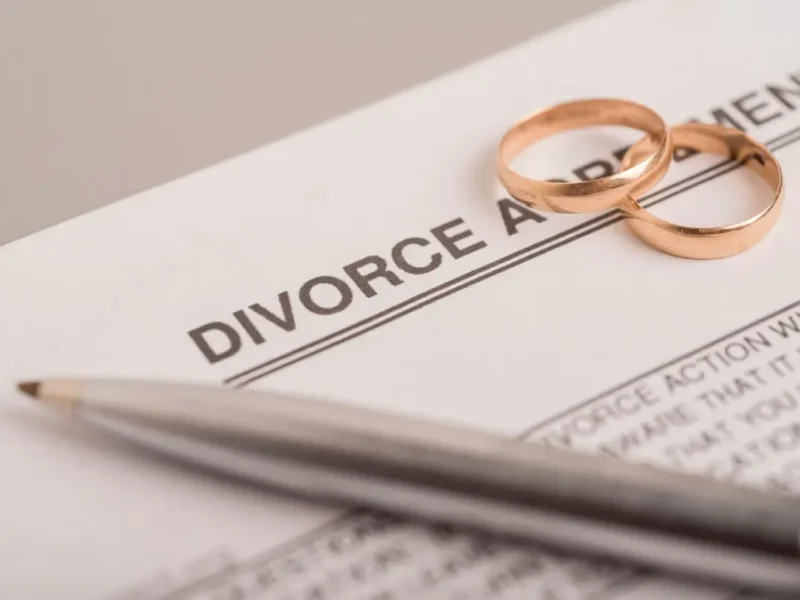As a parent, you want nothing but the best for your child, including their education. However, navigating the world of special education can be overwhelming and challenging, especially when you encounter roadblocks and obstacles along the way. That’s where a special education lawyer comes in.
Contents
- 1 Who is a Special Education Lawyer and What They Do?
- 2 Benefits of Hiring a Special Education Lawyer
- 3 Understanding Your Child’s Rights in Special Education
- 4 Common Issues in Special Education and How a Lawyer Can Help
- 5 The Process of Working with a Special Education Lawyer
- 6 Questions to Ask a Special Education Lawyer Before Hiring Them
- 7 Finding the Right Special Education Lawyer for Your Child
- 8 Conclusion
Who is a Special Education Lawyer and What They Do?
A special education lawyer is a legal professional who specializes in representing children with disabilities and their families in matters related to education. They provide legal advice and representation to parents and students with disabilities regarding their rights under the Individuals with Disabilities Education Act (IDEA) and other federal and state laws.
Special education lawyers can help families in a variety of ways, including:
1. Advocating for Your Child’s Rights
Special education lawyers can help you understand your child’s rights and advocate for their education. They can assist you in negotiating with school districts to ensure that your child receives the accommodations they need to succeed in school.
2. Representing You in Legal Proceedings
If you are in a dispute with your child’s school district over their education, a special education lawyer can represent you in legal proceedings, such as mediation, due process hearings, and appeals.
3. Providing Legal Advice
A special education lawyer can also provide legal advice on issues related to your child’s education, such as Individualized Education Programs (IEPs), Section 504 plans, and eligibility for special education services.
Benefits of Hiring a Special Education Lawyer
Hiring a special education lawyer can provide many benefits for families of children with disabilities. Here are some of the advantages of working with a special education lawyer:
1. Knowledge of Special Education Laws and Regulations
Special education lawyers have extensive knowledge of the laws and regulations related to special education. They can help you understand your child’s rights and ensure that they receive the appropriate services and accommodations.
2. Experience in Advocating for Children with Disabilities
Special education lawyers have experience advocating for children with disabilities. They know how to negotiate with school districts and can help you get the best possible outcome for your child.
3. Ability to Represent You in Legal Proceedings
If you need to go to court to resolve a dispute with your child’s school district, a special education lawyer can represent you in legal proceedings. They can help you navigate the legal system and ensure that your child’s rights are protected.
Understanding Your Child’s Rights in Special Education
Understanding your child’s rights in special education is crucial for advocating for their education. Here are some important things to know:
1. Free Appropriate Public Education (FAPE)
Under IDEA, children with disabilities are entitled to a free appropriate public education (FAPE). This means that public schools must provide special education services and accommodations to eligible children at no cost to their families.
2. Individualized Education Program (IEP)
An Individualized Education Program (IEP) is a legal document that outlines the educational services and accommodations that a child with a disability will receive. The IEP is developed by a team of educators, parents, and other professionals and must be reviewed and updated annually.
3. Least Restrictive Environment (LRE)
IDEA requires that children with disabilities be educated in the least restrictive environment (LRE) possible. This means that children should be educated with their non-disabled peers to the greatest extent appropriate.
Common Issues in Special Education and How a Lawyer Can Help
Families of children with disabilities may encounter a variety of issues in special education. Here are some common issues and how a special education lawyer can help:
1. Denial of Services or Accommodations
If your child’s school district denies them services or accommodations that they need to succeed in school, a special education lawyer can help you advocate for your child’s rights.
2. Disagreements Over IEPs or 504 Plans
If you disagree with your child’s IEP or Section 504 plan, a special education lawyer can help you negotiate with the school district to ensure that your child receives the appropriate services and accommodations.
3. Expulsion or Suspension
If your child is facing expulsion or suspension from school, a special education lawyer can represent you in legal proceedings and help you protect your child’s rights.
The Process of Working with a Special Education Lawyer
If you are considering working with a special education lawyer, here are the steps involved:
1. Consultation
The first step is to schedule a consultation with a special education lawyer. During the consultation, you can discuss your child’s needs and the issues you are facing.
2. Evaluation
After the consultation, the lawyer will evaluate your case and determine if they can help you. They will explain their fees and the services they can provide.
3. Representation
If you decide to work with the lawyer, they will represent you in negotiations or legal proceedings. They will keep you informed throughout the process and ensure that your child’s rights are protected.
Questions to Ask a Special Education Lawyer Before Hiring Them
Before hiring a special education lawyer, here are some questions to ask:
- What is your experience with special education law?
- How do you charge for your services?
- What services can you provide?
- Have you worked with families with similar needs to mine?
Finding the Right Special Education Lawyer for Your Child
Finding the right special education lawyer for your child is crucial. Here are some tips for finding the right lawyer:
1. Ask for Referrals
Ask other parents of children with disabilities for referrals to special education lawyers.
2. Research Potential Lawyers
Research potential lawyers online and read reviews from other clients.
3. Schedule Consultations
Schedule consultations with potential lawyers to discuss your child’s needs and the issues you are facing.
Conclusion
Navigating the world of special education can be challenging, but a special education lawyer can help you advocate for your child’s rights and ensure that they receive the appropriate services and accommodations. By understanding your child’s rights in special education, common issues, and the process of working with a special education lawyer, you can make informed decisions for your child’s educational future.



